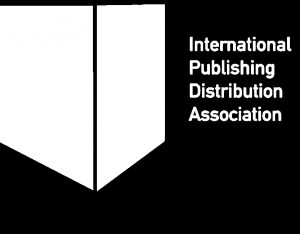When the Readmagine’s team was formulating the new outline for an atypical edition of this meeting – in the context of the pandemic – they thought it was very interesting to find a possible «time-forward scenario» that could serve as a reference to assess the impact of the Covid-19 on digitization and the book market.
And, indeed, this was the main stream of conversation, discussion and also work among the participants. From this perspective Sweden was a very interesting example because it is the «country of the subscription business model».
Probably the people who could best explain this situation were the Swedish professors Wikberg and Borg and -without a doubt- Carlo Carrenho’s participation was a luxury because he is CEO of Publish in Spanish, he is a Brazilian who knows the publishing world in Latin America very well and also lives in Sweden.
One of the interesting statements from the panellists was: “The book industry is undergoing a tremendous change during the pandemic -and the companies that is the most resilient to these changes are the publishing houses and retailers that already digitalized a lot before Corona.” And also added: “This development will have far-reaching consequences from both a business and a democratic point of view”.
They think that this “second wave” of digitalization from the first one is that business models are different in the publishing sector, because the subscription services have the following elements:
- Only digital formats, especially audio books.
- All-you-can-eat and not piece by piece sales.
- Changes the typical process of how different priced formats are launched.
- Sells other genres and more backlist.
- Has totally different corporate valuations and financial terms than traditional bookstores.
The two main conclusions were that:
- The pandemic has dramatically accelerated the digitalization and the long-term trends of the Swedish book industry.
- The history of the book has always been a story of increased accessibility. Even in this time of this disruptive crisis, history repeats itself.
As Carlo Carrenho said during the first introduction of these two professors, the personal motto of Alexandra is a very Swedish one: “If you don’t like what’s being said, change the conversation.”
Erik’s motto for this time is: “It’s got to go bang and it has to be fun, otherwise I won’t come”, as Astrid Lindgren’s character Karlsson says in The World’s Best Karlsson (1968).
Dr Alexandra Borg is an Assistant Professor in Comparative Literature and a lecturer in Swedish. She completed her PhD in 2011, with a dissertation on the fin de siècle-literature of Stockholm (1898–1916). From 2012 to 2015 she was an embedded researcher at Bonnier Publishing Group.
Borg’s research concerns modern publishing business and the future of the book, particularly the connections between new forms of production and the aesthetic of bookishness. She teaches publishing studies, book history, literary theory and methods, and academic writing. Her recent monograph, Strindbergs lilla röda: Boken om boken och typerna (with Nina Ulmaja) was nominated for The August Prize in the category Non-Fiction Book of the Year 2019.
Dr. Erik Wikberg is a Postdoctoral Researcher at Stockholm School of Economics focused on art and literature. He is also an Assistant Professor in War Studies at The Swedish Defense University, and an Expert Member for non-fiction literature in the Swedish Arts Council. Moreover, he is a columnist, a self-employed consultant and a co-owner of a fin-tech startup (Finc AB). Since 2014, he has written 15 reports on book sales statistics for the Swedish Booksellers Association and the Swedish Publishers Association. All in all, he has more than 70 publications.
His current research is focused on plural institutional logics in the organizational field of Sweden’s literature industry. He has previously studied how different cultural organizations, mainly in the art world, handles contradictory demands. He was the first Director of Stockholm School of Economics Literary Agenda from 2018 to 2020, a joint collaboration between Stockholm School of Economics and McKinsey & Co.
Readmagine 2020 merged with Digital Publishing Summit and organized two weeks of presentations and debates around the innovation in the publishing industry. This event was designed and implemented by FGSR, EDRLab and IPDA. The event was adapted to the difficulties that arose for a physical event during the first wave of Covid-19 for a meeting very much based on the interaction of some professionals with others from the very last days of May to the beginning of June.





